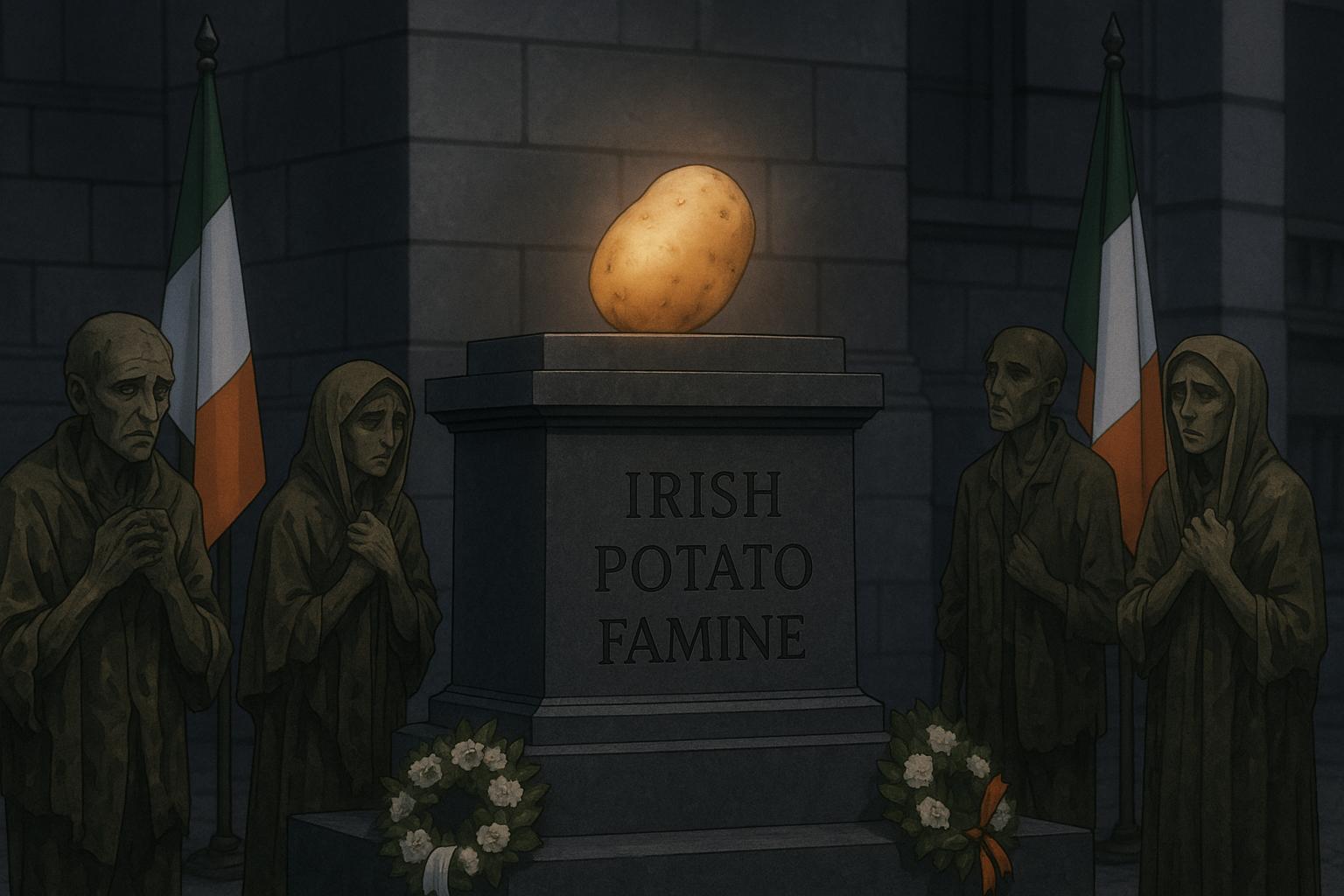In a recent session of the House of Commons, Conservative MP Andrew Griffith's references to the Irish potato famine faced fierce backlash, revealing a troubling disconnect from historical sensitivities among leading political figures. During a debate centered on the economy, Griffith's allusion to the mid-19th century catastrophe—an event that led to the deaths of approximately one million people due to crop failure—has come to symbolize the deep scars left by colonialism and British governance in Ireland.
When questioned by Liberal Democrat MP Jamie Stone about the seed potato industry, Griffith flippantly remarked, “I think that may have been tried historically and not with enormous success.” This offhand comment was met with immediate outrage, particularly from Labour MP Adam Jogee, who condemned it as “offensive and insensitive.” Such insensitivity illustrates a concerning trend among some politicians who appear oblivious to the historical burdens they discuss.
Jogee, who chairs the all-party parliamentary group on Ireland and the Irish in Britain, made it clear in the chamber that remarks referencing the tragic potato famine deserve serious acknowledgment. “These words appear to be referencing the tragedy of the Irish potato famine which, if true, is of course offensive and insensitive,” he emphasized, pointing to a grave misstep in acknowledging delicate historical contexts.
The potato famine is not merely a historical footnote; it's a reminder of a painful legacy that is deeply intertwined with current issues of national identity and economic policy. For many, this tragedy is emblematic of the colonial exploitation that has shaped modern Irish history. Griffith’s thoughtless belittlement could signify a broader neglect by some parties toward the profound implications of their words and actions, igniting justifiable anger among those concerned with Anglo-Irish relations.
Deputy Speaker Judith Cummins noted that addressing Griffith’s comments fell outside her purview but did acknowledge Jogee’s strong response, highlighting an atmosphere of disbelief among MPs. The tension in the chamber underlined a need for politicians to approach historical grievances with the seriousness they warrant, especially in the wake of Labour's new governance where sensitivity should be paramount.
The incident serves as a wakeup call, emphasizing the importance of thoughtful engagement with historical narratives—an area where some political factions frequently falter. Even as agriculture and national identity take center stage in discussions, the necessity of reconciling past injustices with present realities should remain a focal point for all parties.
This episode is a cogent reminder of the responsibility that public figures have: to engage thoughtfully with history and to approach complex topics that resonate across cultural and national boundaries with the utmost care and respect. Such lapses are not harmless; they serve to entrench divisions and perpetuate misunderstandings in an increasingly fragmented political landscape.
Source: Noah Wire Services
